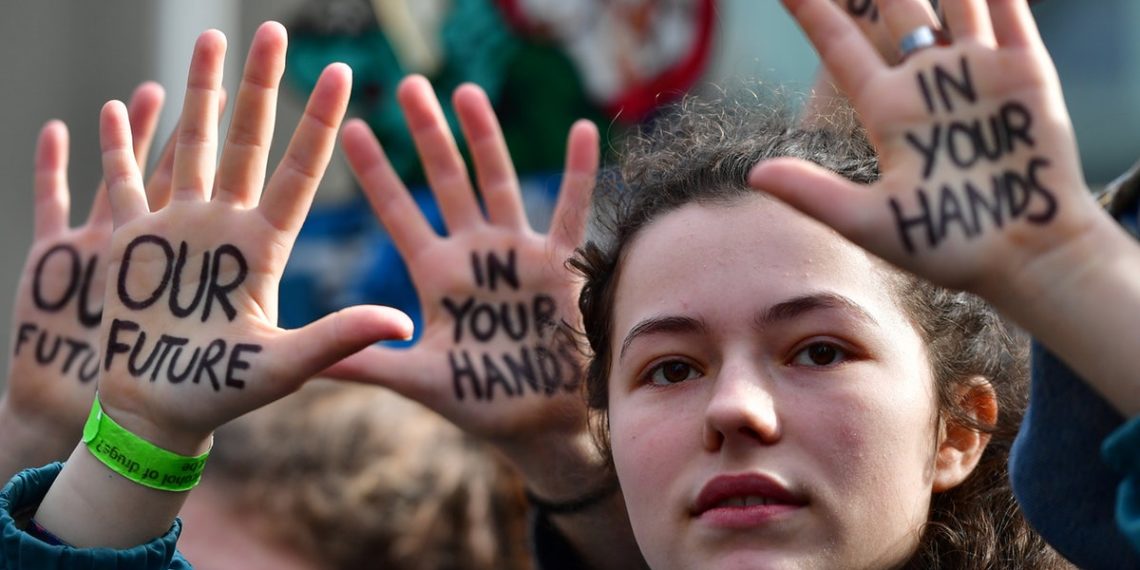The time has come for scientists to break the law. In the scientific journal Nature Ecology and Evolution, we recently explained why we – as conservation scientists – are risking arrest to protest inaction on environmental disasters. We hope our colleagues will join us.
Scientists have spent decades trying to warn the world of worsening climate and ecological crises, and offering alternative pathways for humanity. Unfortunately, this has not slowed our trajectory, let alone turned it around; climate breakdown is happening even faster than predicted. Scientists have been out-spent and out-maneuvered – while we have written policy briefs, fossil fuel companies have splashed the cash to lobby governments. The playing field that scientists have been allowed onto is far from level.
Perhaps our last chance to avert the worst catastrophes is people power – collective action where we join with others to demand change. Gandhi, Martin Luther King, and others used civil disobedience as a tool to drive profound political changes; non-violent resistance has proven effective before and could work again.
Civil Resistance
Many of our scientist colleagues are frustrated with the lack of government action and have spent years trying to engage “the public” in environmental issues. But now that popular environmental movements are here, we see too few scientists at activist meetings or in blockades. Thousands of scientists supported civil disobedience by schoolchildren, but most have been slower to act themselves. Engaging in civil resistance is a huge leap outside our comfort zones – but there is an exciting moment in history happening right now, and we think that we, as scientists, should be part of it.
Scientists have told people the facts, and we must now stand with those people worried about what we’ve told them. By joining protests, we can raise the credibility of people trying to make a difference; people who are routinely smeared by dark-money funded think-tanks and media groups with ties to big oil. If scientists agree that it is time to rebel, it is far harder to paint concerned citizens as extremists.
To be clear, we are not advocating that all scientists risk arrest; some have more to fear from the police than others. But all of us can support activism. We can speak at protests and in town halls, tell the media we support civil disobedience movements, and ensure fellow activists are well versed in science. And white scientists in the Global North, who will suffer very little for their actions, can use their privilege on behalf of others.
Objectivity and Facts
Our colleagues often worry that if they engage in advocacy or activism, they will no longer be seen as objective. But studies show that advocating for a position does not reduce scientists’ credibility or affect how science is viewed, although it might make them less popular in some quarters. And, if we think about it, do we really want to be so objective that we won’t take a position on the destruction of most life on this planet?

Some also worry about whether activist movements are “science-based enough.” But most groups are well versed in the key facts; even Extinction Rebellion’s 2025 zero emissions target, which has been a topic of heated debate, is supported by a recent briefing paper. While of course there will be diverse views and interpretations in any mass movement, so long as we agree with the main thrust of a group, we don’t think it is necessary to argue over details. Many activist groups have also done their homework on social science, and some have even studied the impact of their messaging and tactics as they’ve gone along. If you want to geek out over statistics and impact evaluation, you’ll find plenty of activists joining in.
Time to Rebel
Civil resistance works. It has not yet turned the tide on emissions, but its impacts have already been felt. During the Extinction Rebellion actions in April, the environment shot up to become the third most important issue for British voters, and after the rebellion, the public showed increased support for civil disobedience.
Protesters’ urgent messaging has shifted the political discourse faster in months than it has moved in decades. The U.K. Parliament declared a “Climate Emergency” soon after the civil disobedience in London, along with other national parliaments and almost a thousand local councils in 18 countries. The U.K.’s opposition Labour party is considering aiming for net-zero carbon by 2030 – unthinkable this time last year.
I declared a climate emergency and am working to make London zero-carbon by 2050. London is a hub of expertise in finding ways of cutting carbon emissions and adapting to the impact of climate change. We brought these experts together for Climate Action Week earlier this month. pic.twitter.com/VhBGkmOm4m
— Mayor of London (@MayorofLondon) July 21, 2019
If we emotionally accept what climate breakdown and ecological collapse mean for our own lives, and for all life on Earth, then what can we do but rebel against those keeping us on the highway to hell? Will our next paper really do more to change things than taking to the streets to make our frustration clear? Governments and corporations have read our scientific papers and heard our pleas for decades.
For many of us, other scientists were pleading on our behalf before we were even born. We can let those in power continue to ignore us, or we can rebel.
Disclaimer: The views and opinions expressed here are those of the author and do not necessarily reflect the editorial position of The Globe Post.






















